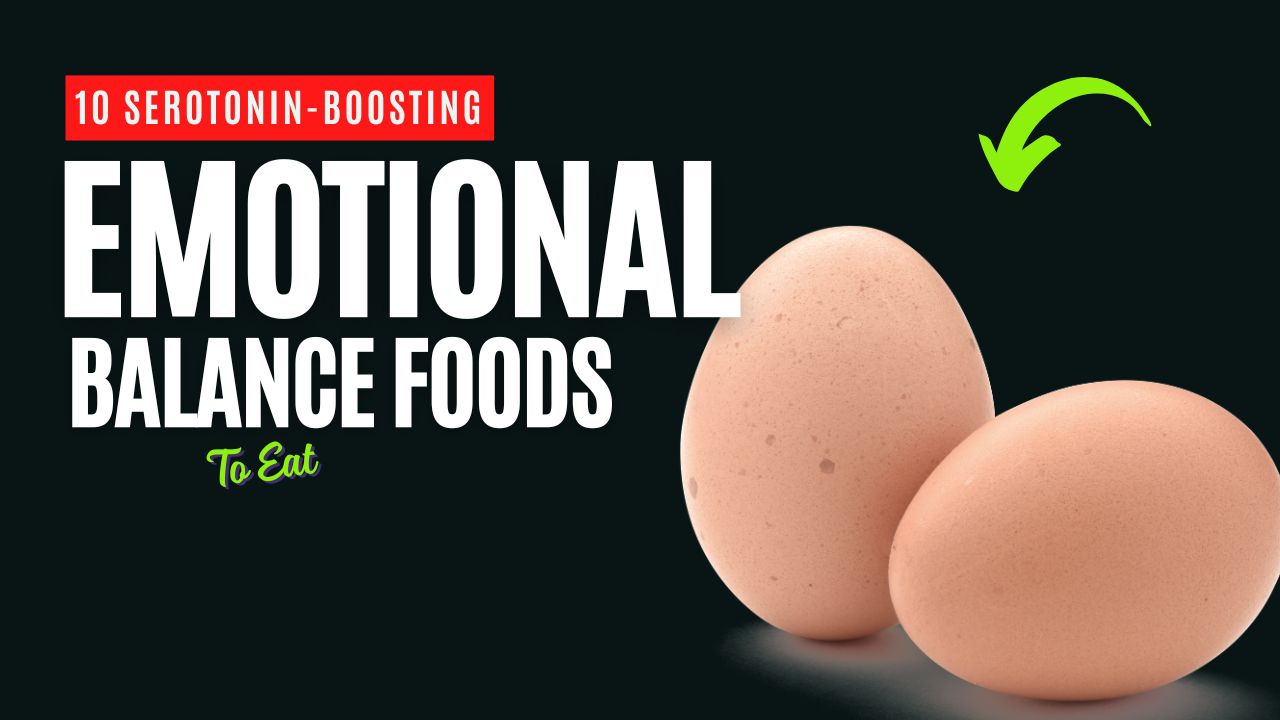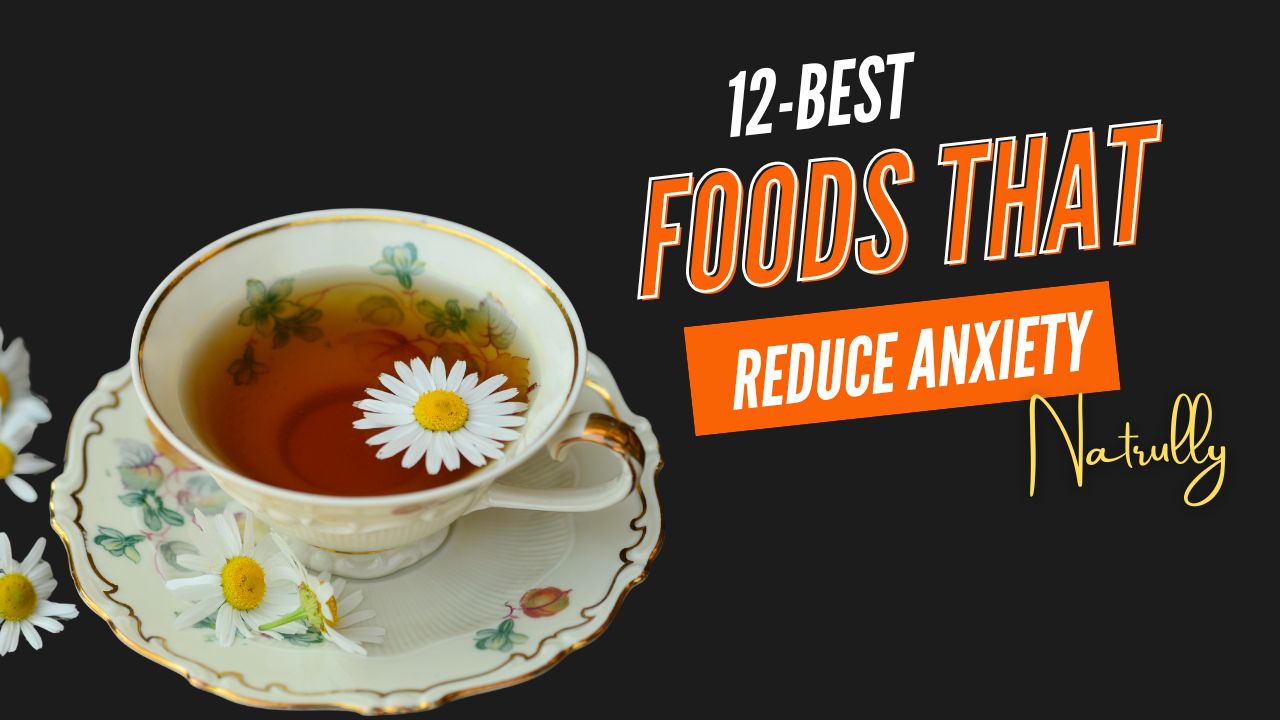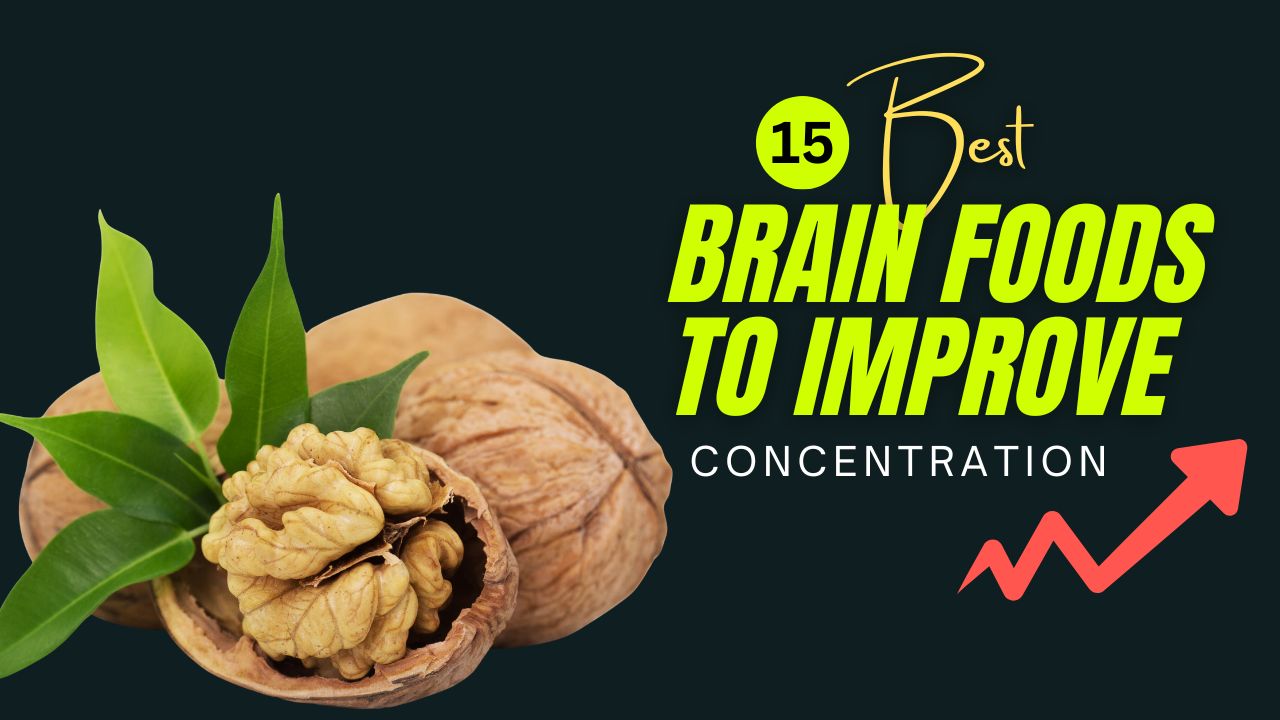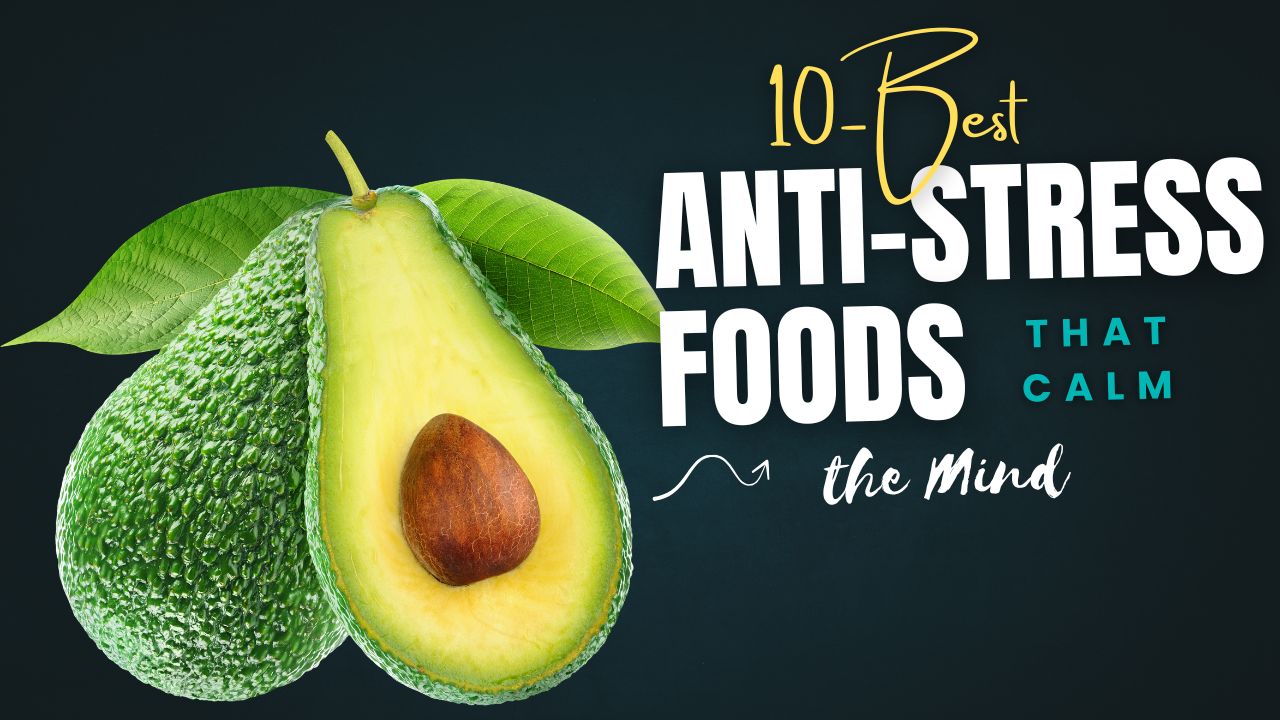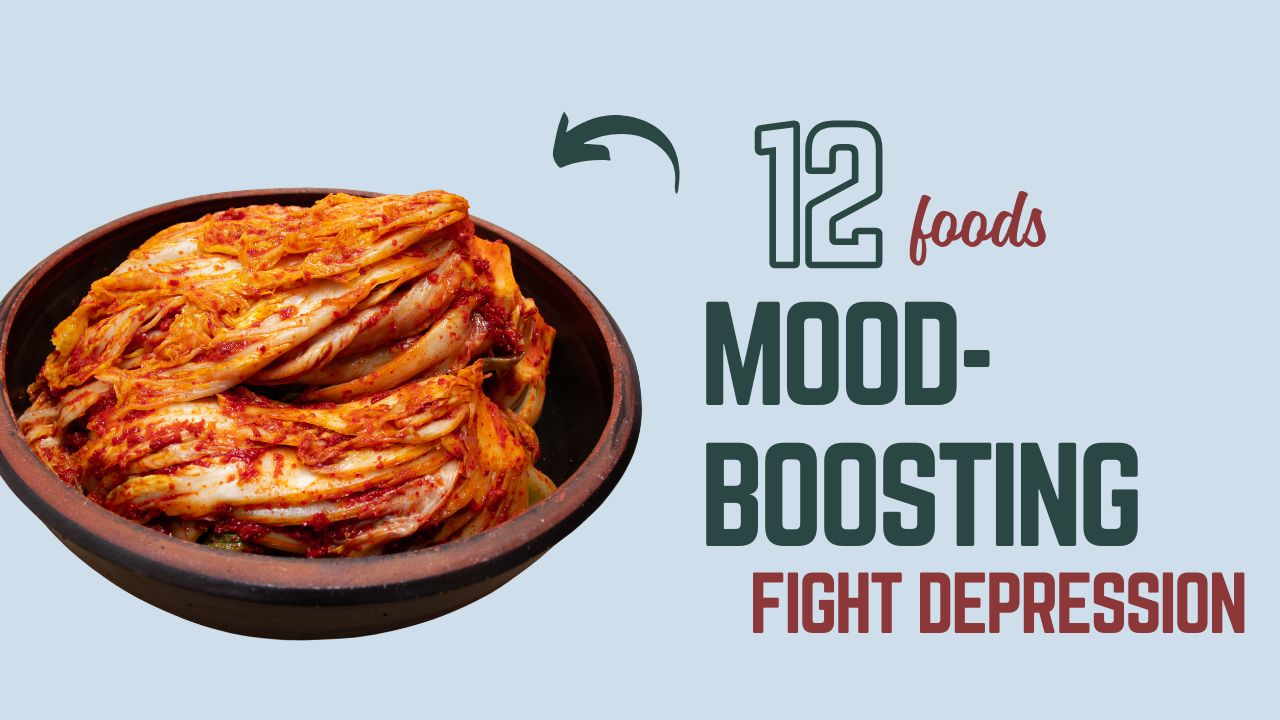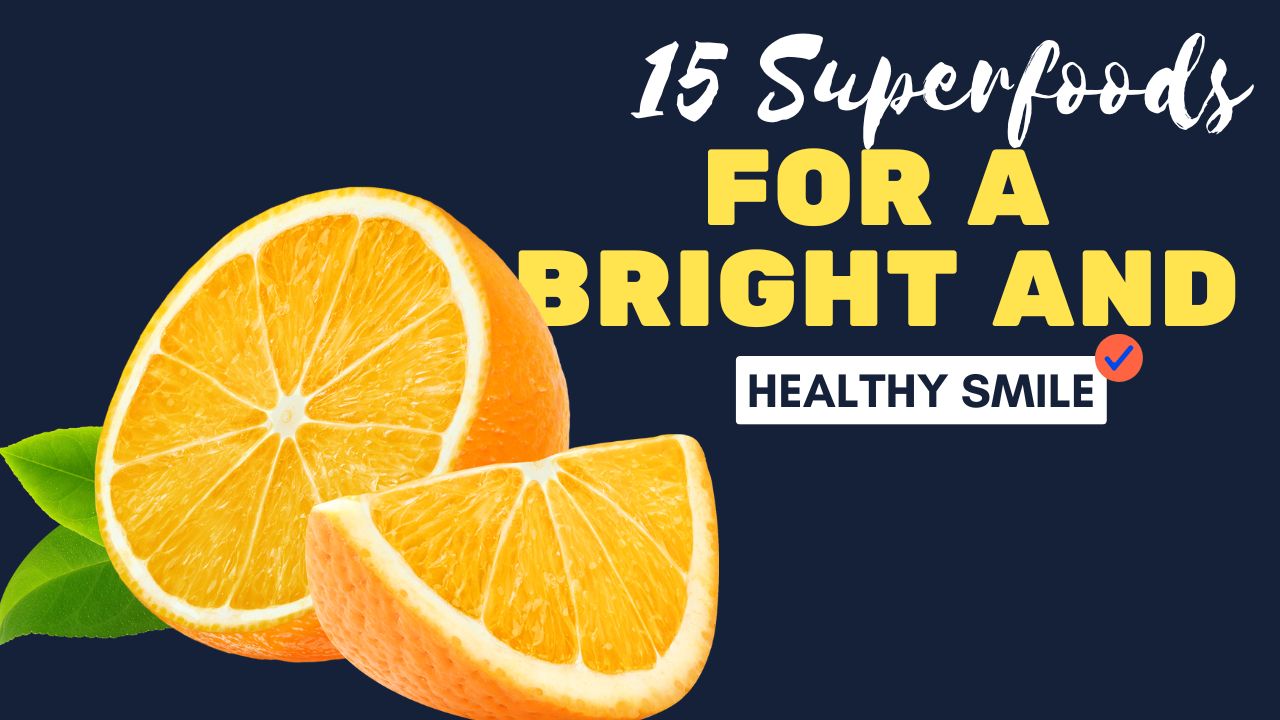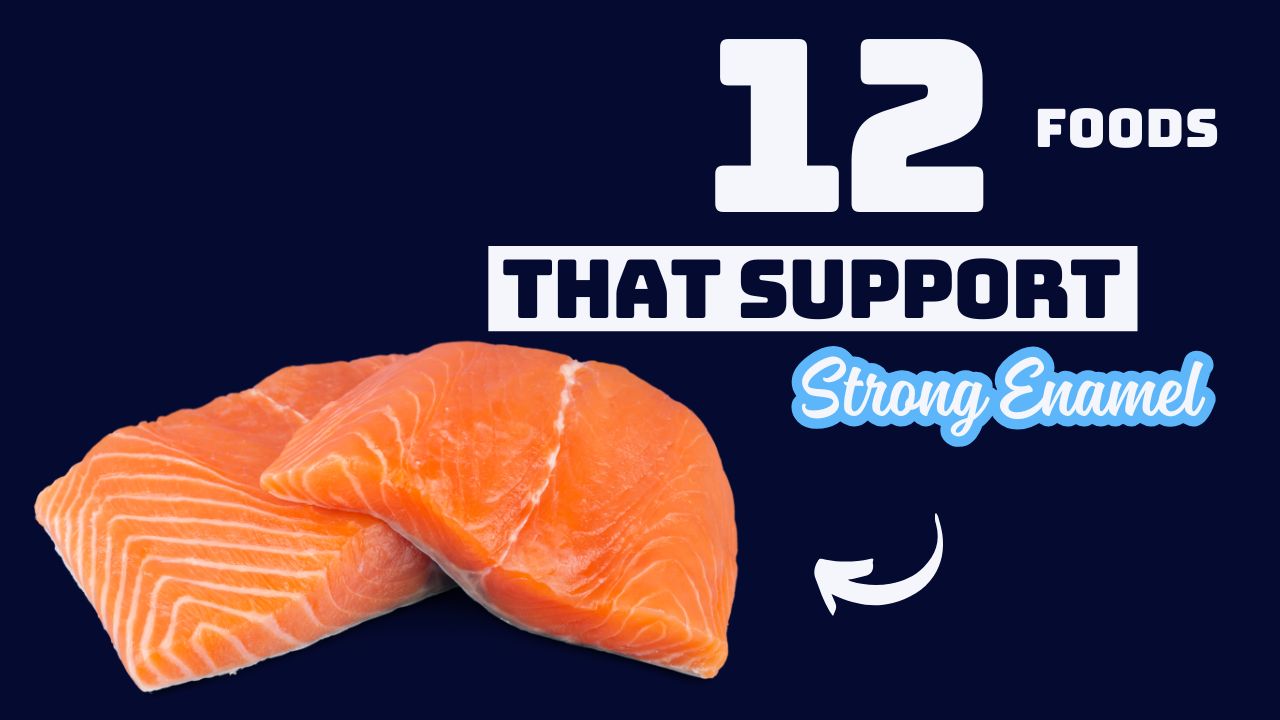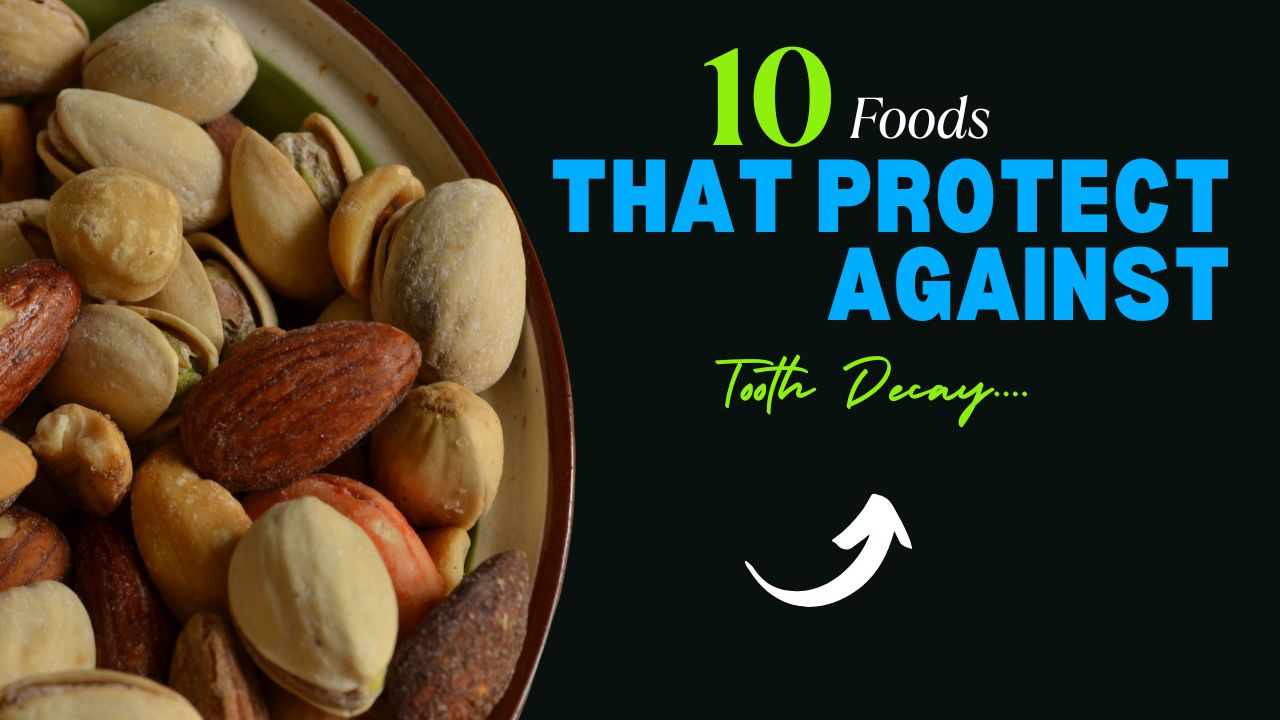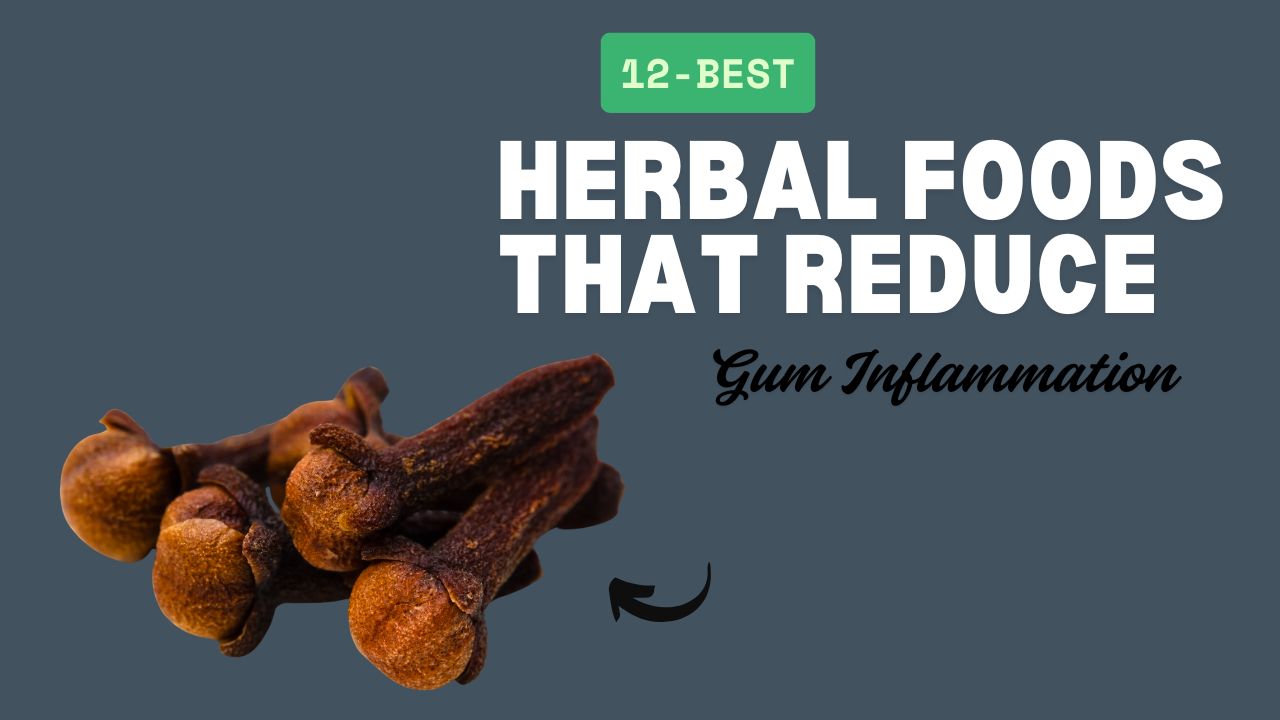Did you know that nearly 77% of people regularly experience physical symptoms caused by stress, according to global health surveys?
Stress doesn’t just affect your mood—it can weaken your immune system, trigger headaches, disturb sleep, and even contribute to chronic conditions like heart disease.
While meditation, exercise, and better sleep are essential tools for stress relief, there’s one powerful remedy that’s often overlooked: the food on your plate.
Certain foods are packed with nutrients that can lower cortisol levels (the stress hormone), balance brain chemistry, and promote feelings of calm and relaxation. Imagine reducing tension simply by adding the right ingredients to your meals!
In this post, we’ll explore 10 anti-stress foods that calm the mind, plus practical tips on how to eat them, who should include or avoid them, storage hacks, and even do’s & don’ts to maximize their benefits.
Let’s dive into nature’s medicine cabinet—your kitchen.
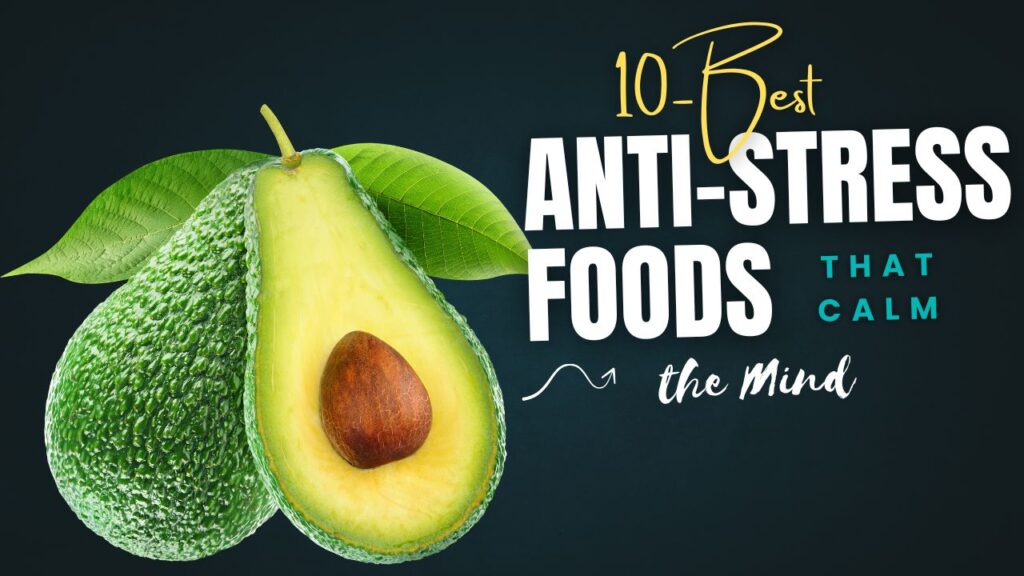
Table of Contents
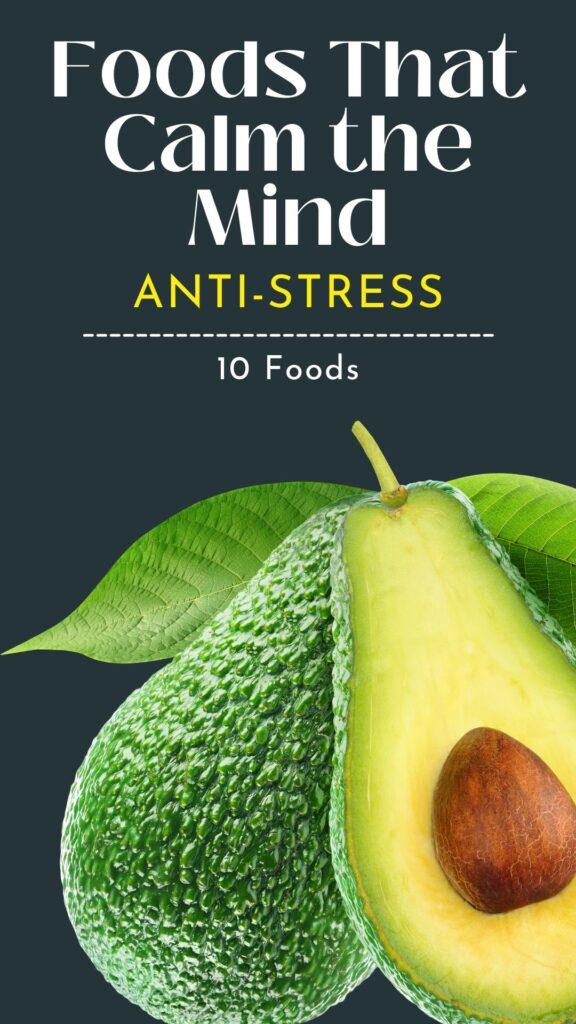
10 Best Anti Stress Foods For Calm Mind
1. Dark Chocolate
Why it helps:
Dark chocolate isn’t just a guilty pleasure—it contains flavonoids and magnesium, both of which are linked to reducing stress and improving mood. It also boosts serotonin, the “feel-good” hormone.
Best Ways to Eat or Use It
- A small piece (70% cocoa or higher) after meals.
- Add shavings to oatmeal, yogurt, or smoothies.
- Melt into warm milk for a soothing drink.
Who Should Eat / Avoid
- Good for: students, busy professionals, and anyone needing an afternoon mood lift.
- Avoid/Limit if: diabetic (choose sugar-free options), caffeine-sensitive, or dealing with acid reflux.
Storage & Buying Tips
- Choose bars labeled 70% cocoa or more.
- Store in a cool, dry place away from sunlight.
- Avoid white or milk chocolate—they contain more sugar than stress-relieving compounds.
Do’s & Don’ts
| ✅ Do | ❌ Don’t |
|---|---|
| Eat 1–2 small squares daily | Overeat—too much adds sugar & calories |
| Pair with nuts or fruits | Buy low-cocoa, high-sugar brands |
Possible Side Effects
- Excess may cause jitters, weight gain, or digestive upset.
2. Fatty Fish (Salmon, Sardines, Mackerel)
Why it helps:
Rich in omega-3 fatty acids, fatty fish help regulate cortisol and adrenaline levels. They also boost brain health and reduce anxiety symptoms.
Best Ways to Eat or Use It
- Grilled or baked salmon with herbs.
- Sardines on whole-grain toast.
- Mackerel in salads or rice bowls.
Who Should Eat / Avoid
- Good for: heart patients, people with anxiety, and those with poor concentration.
- Avoid/Limit if: allergic to seafood or on blood-thinning medications.
Storage & Buying Tips
- Buy wild-caught fish whenever possible.
- Store in the refrigerator and cook within 2 days.
- Freeze for long-term storage.
Do’s & Don’ts
| ✅ Do | ❌ Don’t |
|---|---|
| Cook lightly with olive oil | Deep-fry (destroys nutrients) |
| Pair with leafy greens | Store uncooked fish at room temp |
Possible Side Effects
- Too much may thin the blood; check with your doctor if you’re on medication.
3. Nuts & Seeds (Almonds, Walnuts, Pumpkin Seeds)
Why it helps:
Nuts and seeds are packed with magnesium, zinc, and healthy fats, which support brain health and reduce tension.
Best Ways to Eat or Use It
- Snack on a handful daily.
- Add to smoothies or oatmeal.
- Sprinkle pumpkin seeds on salads.
Who Should Eat / Avoid
- Good for: vegans, athletes, and students.
- Avoid/Limit if: allergic to nuts/seeds or prone to kidney stones (high oxalate content).
Storage & Buying Tips
- Store in airtight jars in a cool, dry place.
- Refrigerate walnuts to prevent them from turning rancid.
Do’s & Don’ts
| ✅ Do | ❌ Don’t |
|---|---|
| Choose raw or dry-roasted | Eat salted/flavored varieties daily |
| Rotate between different nuts | Overconsume (calorie-dense) |
Possible Side Effects
- May cause bloating or allergies in sensitive individuals.
4. Avocados
Why it helps:
Avocados are rich in B vitamins and potassium, both known to ease nervous system tension. They also regulate blood pressure and prevent stress-related spikes.
Best Ways to Eat or Use It
- Mashed on whole-grain toast.
- Blended into smoothies for creaminess.
- Sliced in salads or rice bowls.
Who Should Eat / Avoid
- Good for: people with high stress at work, students, and those managing blood pressure.
- Avoid/Limit if: you have avocado allergies or kidney conditions (high potassium).
Storage & Buying Tips
- Buy slightly firm avocados and let them ripen at room temperature.
- Store ripe avocados in the fridge to slow ripening.
- Sprinkle lemon juice on cut avocados to prevent browning.
Do’s & Don’ts
| ✅ Do | ❌ Don’t |
|---|---|
| Eat fresh & ripe | Leave cut avocados exposed to air |
| Combine with lemon/lime juice | Freeze fresh slices (texture loss) |
Possible Side Effects
- Overeating may lead to weight gain due to high calories.
5. Yogurt
Why it helps:
Probiotics in yogurt improve gut health, which has a direct connection to mood regulation through the gut-brain axis.
Best Ways to Eat or Use It
- Eat plain Greek yogurt with berries.
- Blend into smoothies.
- Use as a base for dips and dressings.
Who Should Eat / Avoid
- Good for: students, athletes, and those with digestive issues.
- Avoid/Limit if: lactose intolerant or allergic to dairy.
Storage & Buying Tips
- Choose unsweetened, plain yogurt.
- Store in the fridge and consume within 1 week after opening.
Do’s & Don’ts
| ✅ Do | ❌ Don’t |
|---|---|
| Pick probiotic-rich yogurt | Buy sugar-loaded flavored yogurt |
| Use in smoothies/dips | Leave outside fridge |
Possible Side Effects
- May cause bloating in lactose-sensitive people.
6. Leafy Greens (Spinach, Kale, Swiss Chard)
Why it helps:
Leafy greens are high in magnesium, which plays a key role in regulating cortisol. They also provide folate, helping your body produce dopamine.
Best Ways to Eat or Use It
- Add to smoothies.
- Steam lightly as a side dish.
- Toss into salads with nuts.
Who Should Eat / Avoid
- Good for: people with fatigue, high stress, or low mood.
- Avoid/Limit if: you take blood-thinning medication (vitamin K interaction).
Storage & Buying Tips
- Store in a breathable bag in the fridge.
- Wash just before eating to prevent wilting.
Do’s & Don’ts
| ✅ Do | ❌ Don’t |
|---|---|
| Steam lightly | Overcook (destroys nutrients) |
| Rotate greens weekly | Buy wilted leaves |
Possible Side Effects
- Excessive intake may interfere with certain medications.
7. Blueberries
Why it helps:
Packed with antioxidants and vitamin C, blueberries help reduce oxidative stress, strengthen immunity, and support brain health.
Best Ways to Eat or Use It
- Add to oatmeal or yogurt.
- Blend into smoothies.
- Snack fresh or frozen.
Who Should Eat / Avoid
- Good for: students, older adults, and anyone needing a mood lift.
- Avoid/Limit if: prone to kidney stones (oxalate-rich).
Storage & Buying Tips
- Store in the fridge for up to 1 week.
- Freeze for long-term use.
Do’s & Don’ts
| ✅ Do | ❌ Don’t |
|---|---|
| Eat fresh or frozen | Leave unwashed berries in fridge |
| Mix with nuts/seeds | Store in sealed moist container |
Possible Side Effects
- May cause digestive discomfort if overeaten.
8. Green Tea
Why it helps:
Green tea contains L-theanine, an amino acid that promotes relaxation without drowsiness. It also reduces cortisol and boosts focus.
Best Ways to Eat or Use It
- Brew hot tea with lemon.
- Use matcha powder in lattes or smoothies.
Who Should Eat / Avoid
- Good for: office workers, students, and those needing calm alertness.
- Avoid/Limit if: caffeine-sensitive, pregnant, or anemic.
Storage & Buying Tips
- Store loose leaves or bags in airtight tins.
- Keep away from sunlight and moisture.
Do’s & Don’ts
| ✅ Do | ❌ Don’t |
|---|---|
| Brew 2–3 cups daily | Overconsume (too much caffeine) |
| Pair with lemon for absorption | Drink on empty stomach (may cause nausea) |
Possible Side Effects
- Excess intake may cause insomnia or stomach upset.
9. Oats
Why it helps:
Oats are a complex carbohydrate that boost serotonin levels and stabilize blood sugar, preventing mood swings.
Best Ways to Eat or Use It
- Overnight oats with fruits.
- Warm oatmeal with nuts and seeds.
- Use oat flour in baking.
Who Should Eat / Avoid
- Good for: people with anxiety, low energy, or sugar cravings.
- Avoid/Limit if: gluten-sensitive (choose certified gluten-free oats).
Storage & Buying Tips
- Store dry oats in airtight containers.
- Keep in a cool, dry pantry.
Do’s & Don’ts
| ✅ Do | ❌ Don’t |
|---|---|
| Use steel-cut or rolled oats | Overeat instant oats with sugar |
| Pair with fruits/nuts | Leave uncovered (moisture spoilage) |
Possible Side Effects
- May cause bloating in some individuals.
10. Chamomile Tea
Why it helps:
Known as a natural relaxant, chamomile tea contains apigenin, an antioxidant that binds to brain receptors, reducing anxiety and promoting sleep.
Best Ways to Eat or Use It
- Brew fresh chamomile tea before bed.
- Combine with honey for added soothing effect.
Who Should Eat / Avoid
- Good for: people with insomnia, anxiety, or nighttime stress.
- Avoid/Limit if: allergic to daisies or taking blood-thinners.
Storage & Buying Tips
- Store dried chamomile in airtight containers.
- Keep away from humidity.
Do’s & Don’ts
| ✅ Do | ❌ Don’t |
|---|---|
| Drink 1 cup before bedtime | Overconsume (can cause drowsiness) |
| Use organic dried flowers | Mix with alcohol or sedatives |
Possible Side Effects
- May cause allergic reactions in sensitive individuals.
Conclusion
Stress may be unavoidable, but how you fuel your body can make a world of difference. From the magnesium-rich power of leafy greens to the calming L-theanine in green tea and the antioxidant punch of blueberries, these 10 foods are more than just nutrition—they are natural tools to bring balance back to your mind and body.
Next time stress creeps in, instead of reaching for junk food, try adding one of these calming foods to your plate. Small, mindful dietary choices can transform how you feel each day.
Which of these stress-busting foods is your favorite? Try including one in your next meal and share your go-to recipe in the comments!
Frequently Asked Questions (FAQs)
Can food really help reduce stress?
Yes. Certain foods contain nutrients like magnesium, omega-3 fatty acids, antioxidants, and probiotics that regulate cortisol (the stress hormone), balance neurotransmitters like serotonin and dopamine, and promote relaxation. While food alone isn’t a cure for chronic stress, it can be a powerful support system alongside lifestyle changes.
How quickly do anti-stress foods work?
The effects vary. Some foods, like chamomile tea, may create immediate relaxation, while others, like omega-3-rich fish or probiotics, support long-term brain and hormonal balance when eaten consistently over weeks.
Can I eat all 10 foods daily?
Yes, but balance is key. Overeating—even healthy foods—can cause digestive issues or weight gain. Aim to rotate them throughout the week for variety and maximum benefits.
Do processed versions of these foods (like flavored yogurt or chocolate bars) still work?
Not really. Processed versions often contain added sugars, artificial flavors, or unhealthy fats that cancel out the stress-reducing benefits. Choose whole, minimally processed options whenever possible.
What foods should I avoid if I’m stressed?
Foods high in sugar, refined carbs, processed meats, alcohol, and caffeine may worsen anxiety, spike cortisol, and disturb sleep.
Do supplements work as well as stress-relieving foods?
Supplements like omega-3 capsules or magnesium tablets may help, but whole foods provide a synergistic mix of nutrients plus fiber and antioxidants that pills can’t fully replicate.
Can kids and teens benefit from anti-stress foods?
Absolutely. Kids and teens experience academic and social stress, and nutrient-rich foods like yogurt, oats, nuts, and blueberries can support their mental well-being naturally. Just be mindful of portion sizes and allergies.
